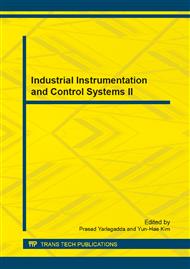p.1852
p.1857
p.1863
p.1867
p.1871
p.1877
p.1882
p.1887
p.1892
Restarted LBFGS Algorithm for Power Amplifier Predistortion
Abstract:
For the linearization of power amplifiers, a digital pre-distorter is proposed to compensate nonlinear distortion in this paper. The pre-distorter is realized by Volterra series, and a restarted limited memory BFGS(LBFGS) algorithm is proposed for training the nonlinear pre-distorter. Training of Volterra series can be switched between gradient descend algorithm and quasi Newton algorithm by setting a switching condition, and LBFGS algorithm can be used for high dimensional iterative matrix of BFGS algorithm. These make the new algorithm much more stable with a fast convergence rate. The pre-distorter is used for OFDM power amplifiers and it high efficiency is proved by simulation results. Moreover, the convergence rate of the proposed algorithm is greatly faster than that of the gradient algorithm.
Info:
Periodical:
Pages:
1871-1876
Citation:
Online since:
July 2013
Authors:
Price:
Сopyright:
© 2013 Trans Tech Publications Ltd. All Rights Reserved
Share:
Citation:


